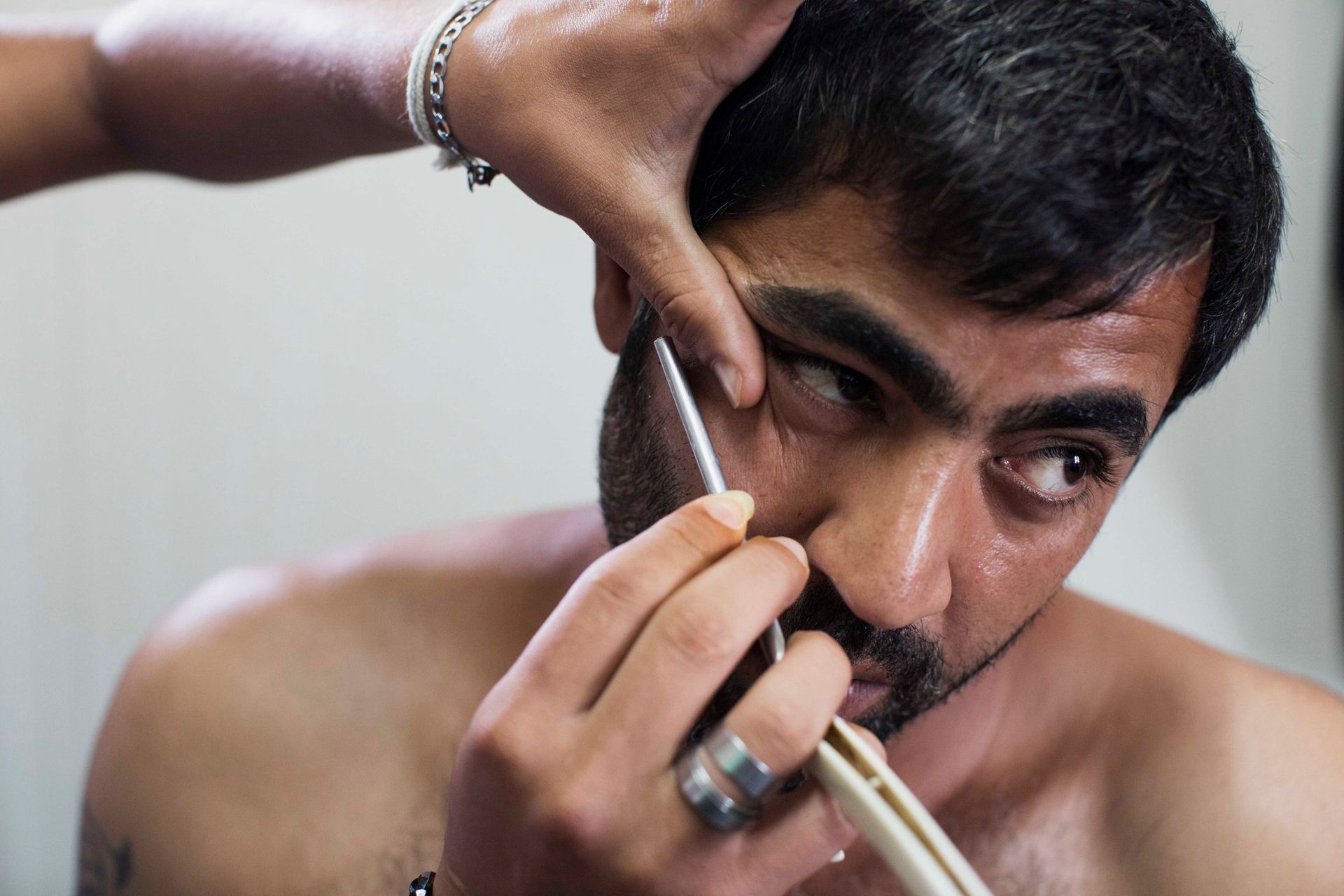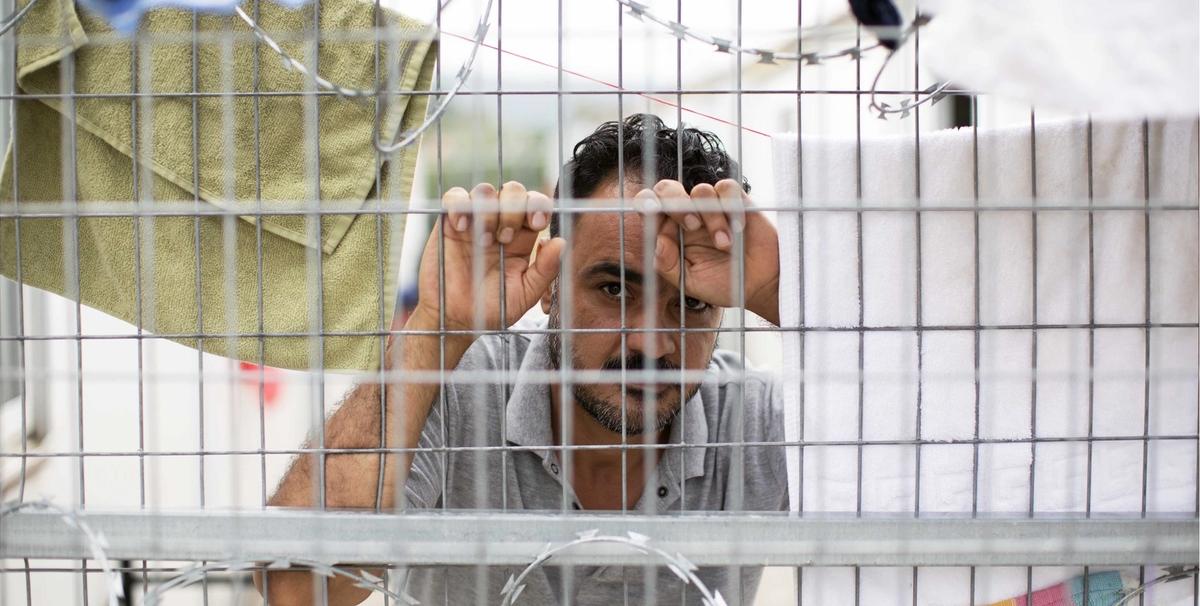A series of images documenting the plight of male refugees, and the psychological problems they face, are due to go on show in the Education Room at the Saatchi Gallery in London this week (The Lost Men of Syria, 20 July-9 August). The works are by the London-based photojournalist Edward Jonkler, who has chronicled the experiences of men held in refugee camps and asylum centres across the Middle East and Europe.
Jonkler spent time in the former refugee camp in Calais known as “the jungle”, which he visited on 12 occasions. He also went to Lesbos in Greece with the London-based non-profit, The Worldwide Tribe, which is behind the current exhibition. He also worked in camps and unofficial settlements in Turkey, Lebanon, and Jordan.
The Rukban camp, located in Syria near the Jordanian border, proved particularly challenging. “In Rukban, there are approximately 75,000 refugees living in tents and mud houses in appalling conditions, under constant attack by the Islamic state, and they can't go anywhere. Access is tightly controlled and we had a large military escort,” he tells The Art Newspaper.
“But the worst conditions outside of Syria I've seen are on the Greek island of Chios, where approximately 3,000 Syrians and Iraqis are waiting for an asylum decision or have already been refused. Many consider suicide and the limbo they are held in is unbearable for most,” he adds.

Jonkler’s images highlight the mental health issues surfacing in the camps where the men, formally the family breadwinners and business owners, feel bereft. “Mental health is definitely the most pressing problem, but this takes many forms. Ultimately, the most prevalent issue is getting people productive again; when they have spent their whole lives working hard and suddenly are unable to do anything,” he says. Substance abuse is subsequently prevalent.
Potential radicalisation is another concern. “I'm sure governments are aware of the radicalisation risk in camps… there isn't enough of a behavioural science-led effort to tackle the psychological and sociological issues and effects on refugees themselves. If problems around integration were looked at with more of a mental health angle, we would be immediately focusing on rehabilitation in a more pragmatic and positive way, which would help everyone,” Jonkler says.
According to the International Organisation for Migration, a UN-affiliated body, around 550,000 Syrians entered Europe after travelling by sea from Turkey to Greece during 2015 and 2016.


